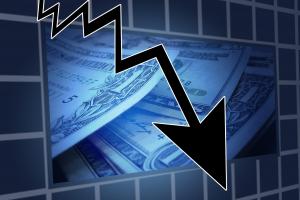Pulse: US
Brand-Heavy and Asset-Light: Moving Beyond the Acute-Care Mindset
For health systems, the day of reckoning is near. A recent Morgan Stanley report states that over 1,000 of the nation’s 5,000+ hospitals are currently weak or at risk of closing. (1) This is the beginning of a larger wave.
The pressure is top down and bottom up. Payers are unwilling to continue unadulterated fee-for-service (FFS) payment formularies. Consumers increasingly expect convenience, lower costs, better outcomes and improved customer experience.
Chinese Money, Institutional Weaknesses, and Populism: A Recipe for Disaster?
The expansion of Chinese commercial activities in Latin America and the Caribbean raises questions.
Amplifying Transformation: Addressing Medicare Advantage's Disadvantages
The U.S. healthcare system will not change the way it delivers care until it changes the way it pays for care. Perverse incentives riddle fee-for-service payment (FFS) and lead to overtreatment, fragmented delivery and runaway medical inflation. Incremental attempts to reform care delivery through value-based payment reform and provider education (e.g. the “Choosing Wisely” initiative) have not changed practice patterns in meaningful ways.
Markets are Spooked - but will the Fed give us a Merry Christmas?
As everyone knows, October has been a terrible month for equity markets. Some market participants feel that this did not just coincide with higher interest rates, but was caused by flawed Fed monetary policy and comments on overshooting. Like the humming chorus in Madama Butterfly, there has been a steady rise in the number of voices supporting a Fed pause in December. These include members of the Federal Reserve Open Market Committee itself, such as Neel Kashkari, and leading economists such as Jason Furman.
The Latest Outlook on the Economy: Another Canary Swoons
For several months, I’ve written about growing signals of a possible recession perhaps 10 to 15 months from now. The yield curve has flattened dramatically, because global investors are nervous about our near-term prospects. Investment growth after depreciation has slowed, even with Trump’s costly tax cuts. Inflation has picked up some steam, and interest rates have risen accordingly. Most important, productivity has been virtually flat for three years, and the inflation-adjusted earnings of a typical household have fallen now for more than a year.
No Time to Waste: Revolutionizing Healthcare Data Collection, Curation & Application
Healthcare data wants to be free, but it is oppressed. Entrenched oligarchs trap information within closed, centralized systems that prioritize revenue collection, misuse resources and tolerate medical error. Data gasps for breath as it fights to break into curated systems that produce insight.
The Global Financial Crisis – A Decade On
Originally published by FIIG’s The Wire blog.
When Lehman Brothers filed for bankruptcy on Monday 15 September 2008, I was in what would turn out to be my last year as Chief Economist at ANZ Bank (not that I knew it then – I didn’t decide to leave until almost exactly three months later, and then took another seven months to put that decision into effect).
Autism Therapy Shines Bright: Innovative Therapies, More Reimbursement, Sector Poised for Growth
Co-authored with Todd Rudsenske & Daniel A. Gofman*.
Autism Spectrum Disorder (ASD) is the nation’s fastest-growing developmental disorder, one that touches each child and family in unique and complicated ways. A lifelong condition, ASD requires individualized treatments that are now increasingly available in communities across the United States.
Don’t be fooled: Working Americans are worse off under Trump
This essay was originally published by The Washington Post, October 1, 2018
Despite robust economic numbers during the Trump presidency, the American public has seemed curiously unmoved by good news such as the lowest U.S. unemployment level in nearly half a century. Its enthusiasm might have been dampened by this underappreciated economic reality: The typical working American’s earnings, when properly measured, have declined during the Trump administration.


 by
by 
 by
by 

 by
by 
 by
by 


 by
by 

